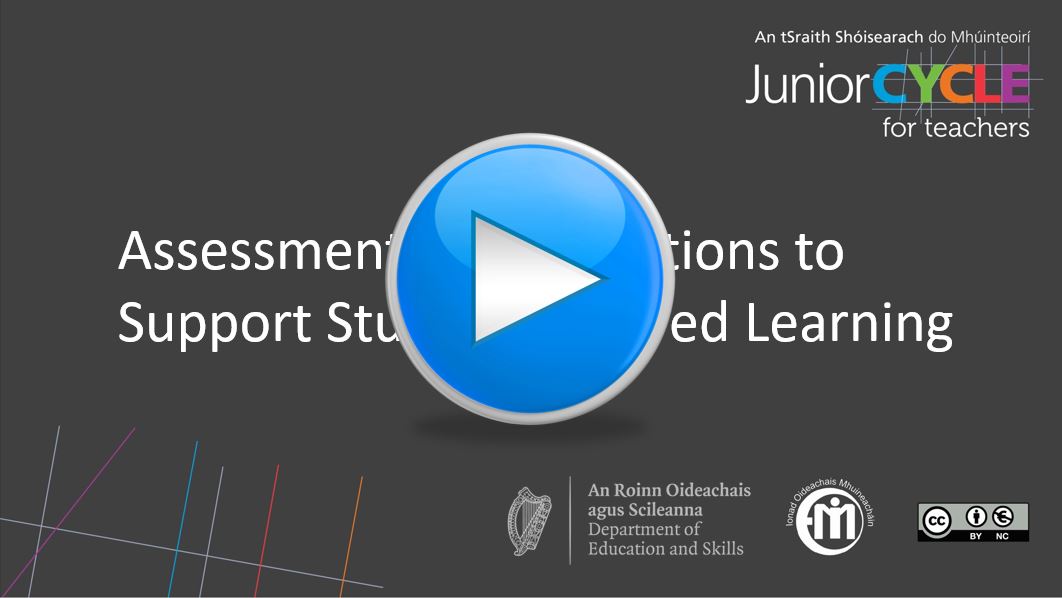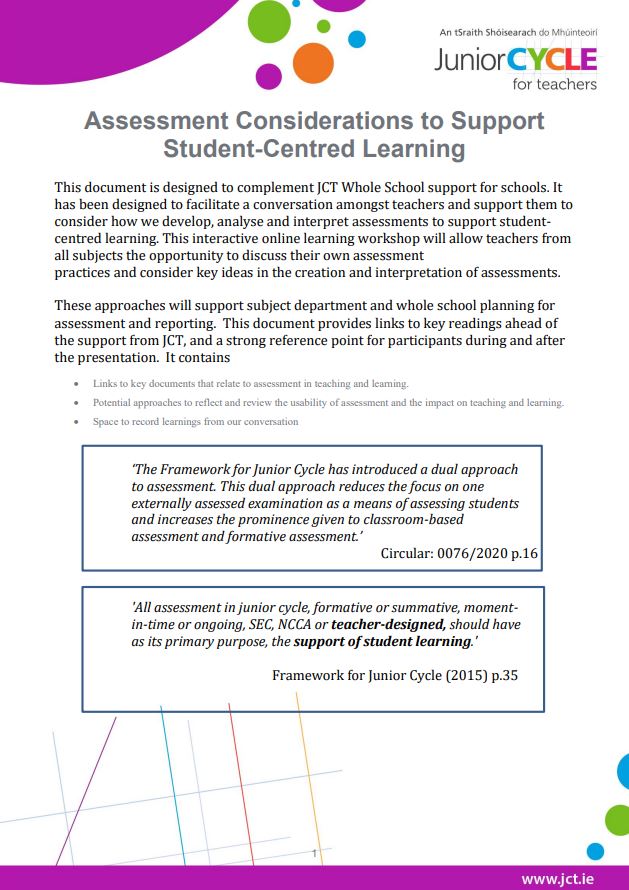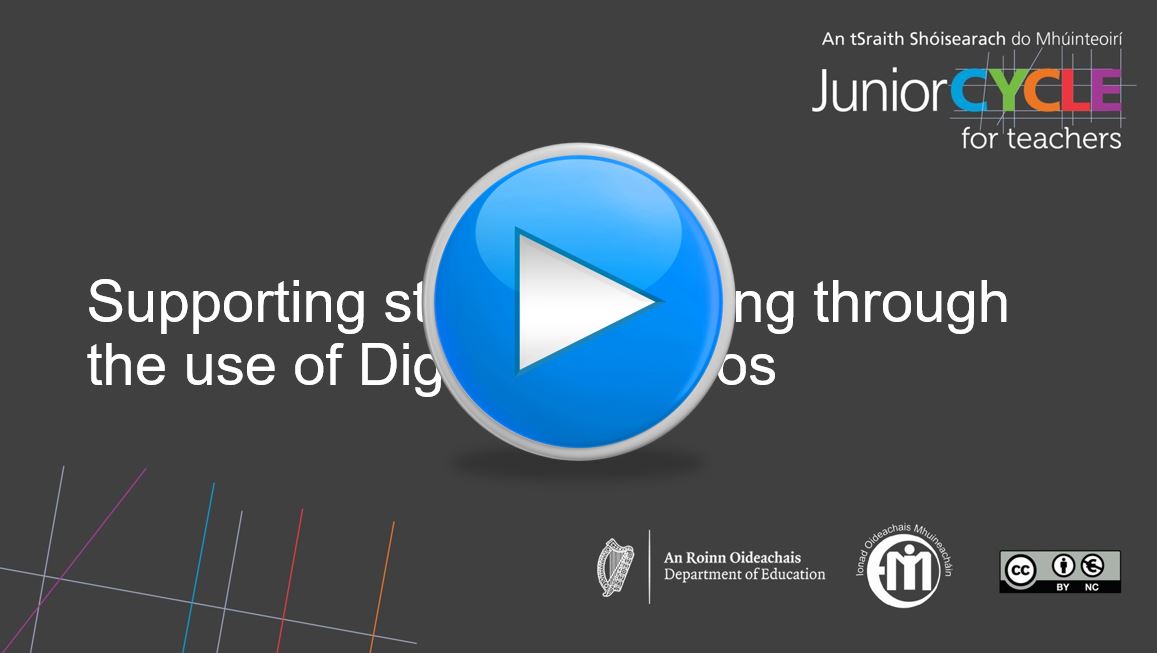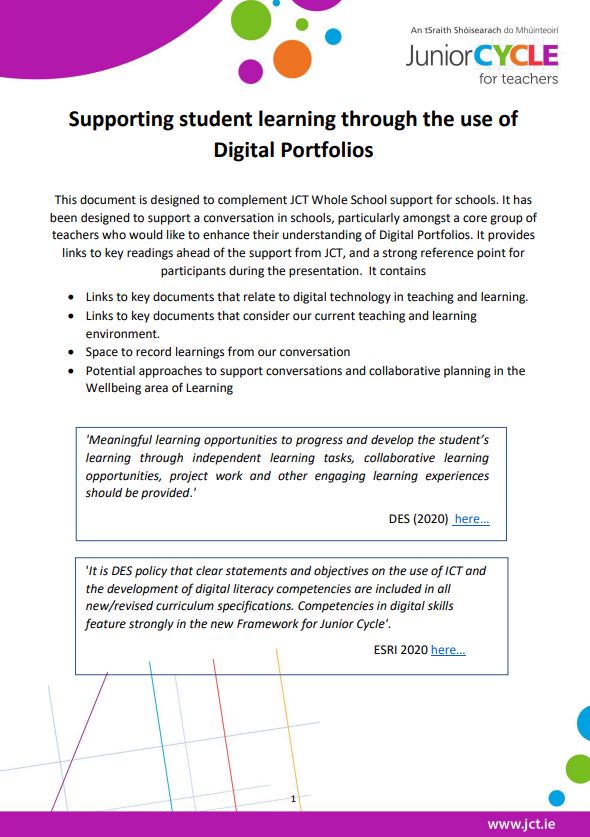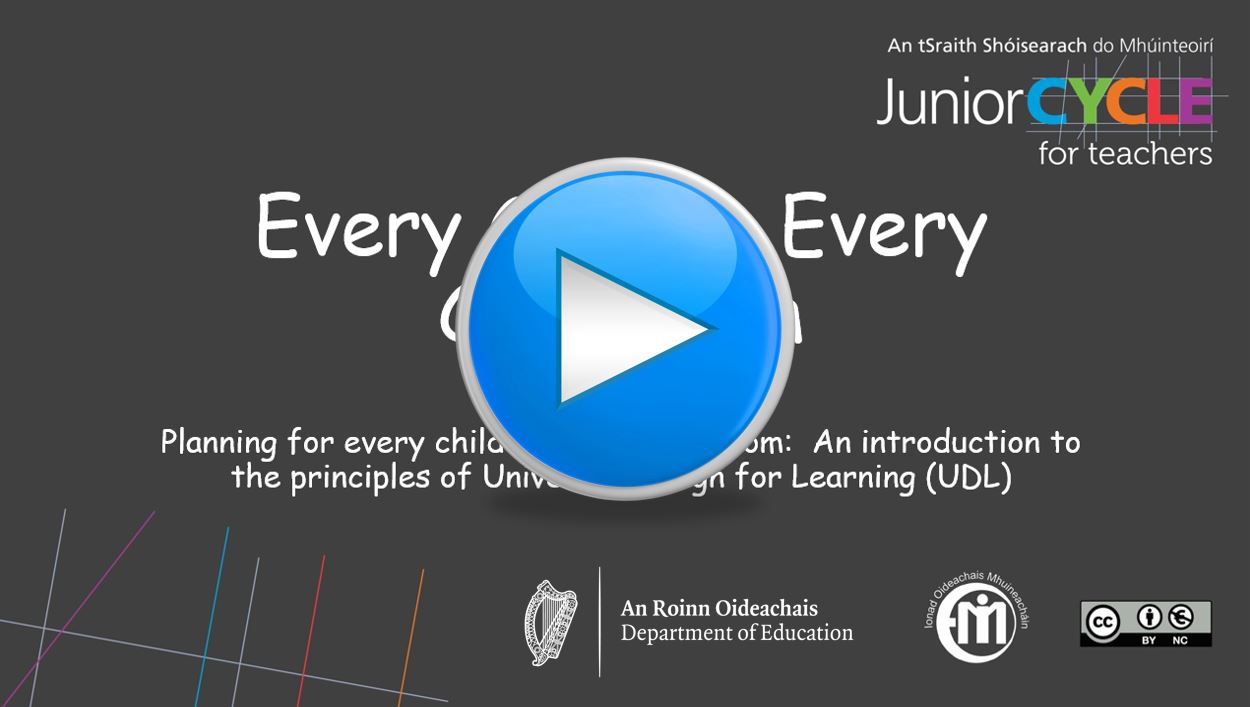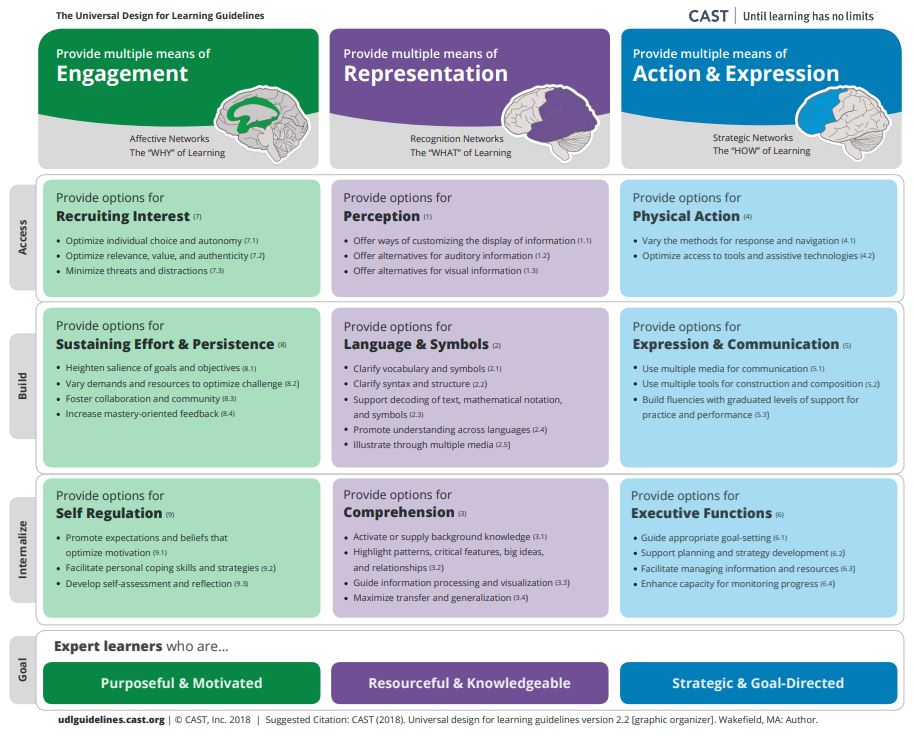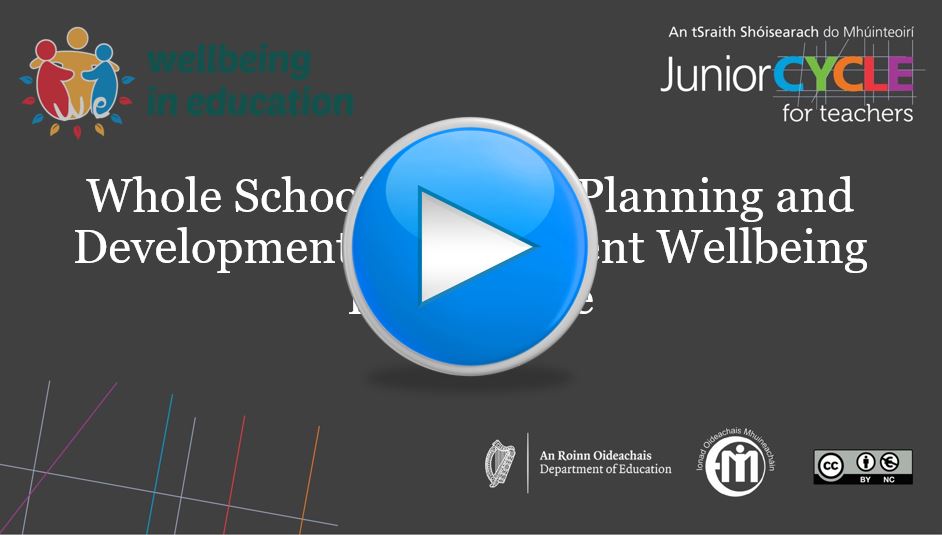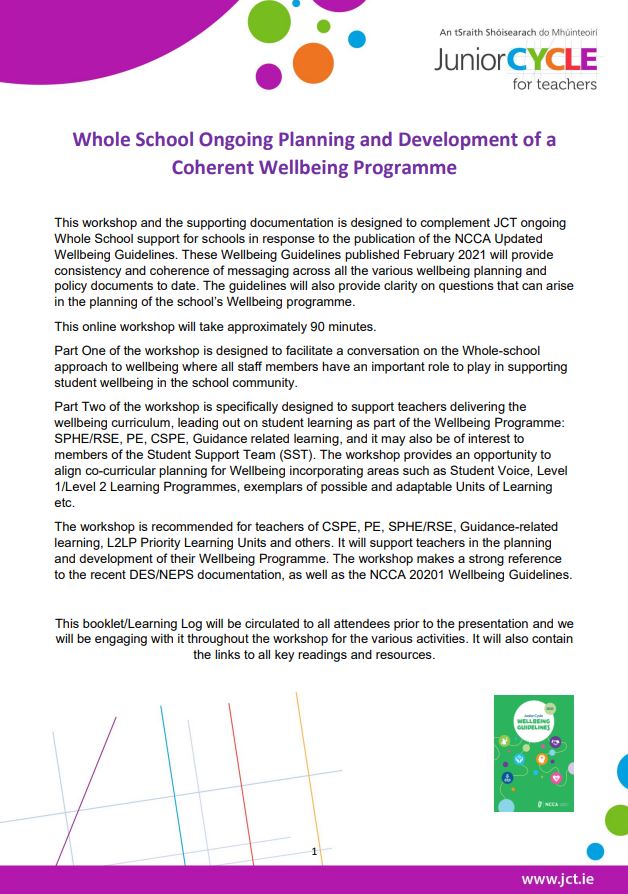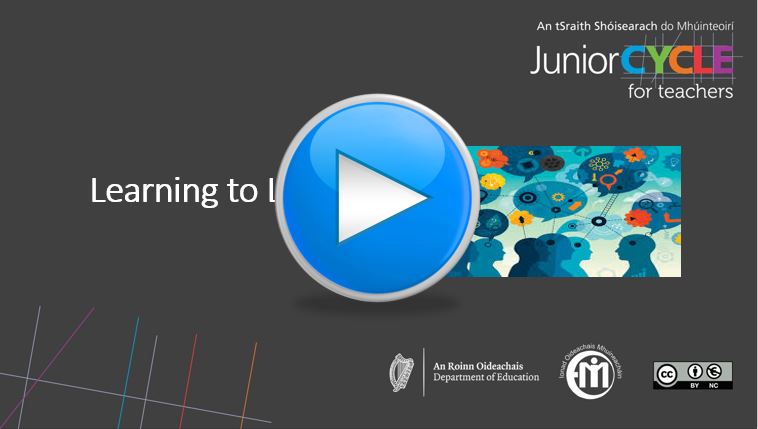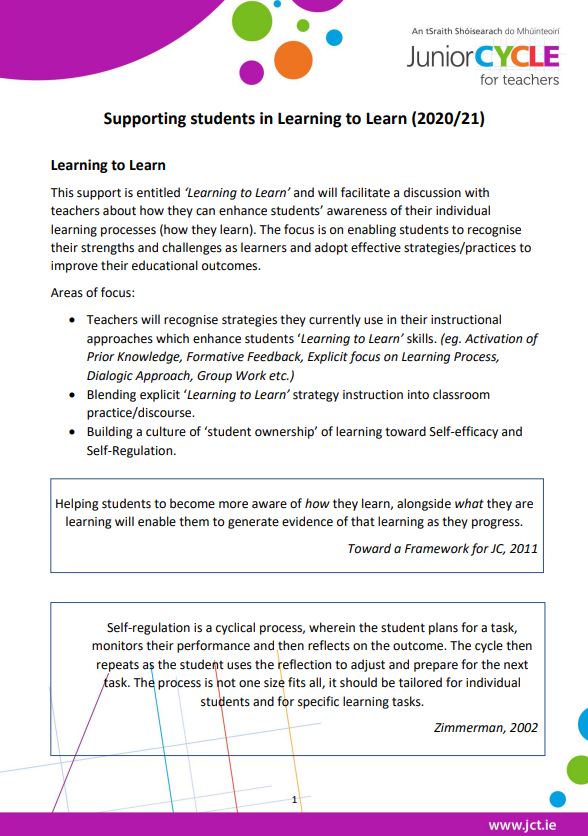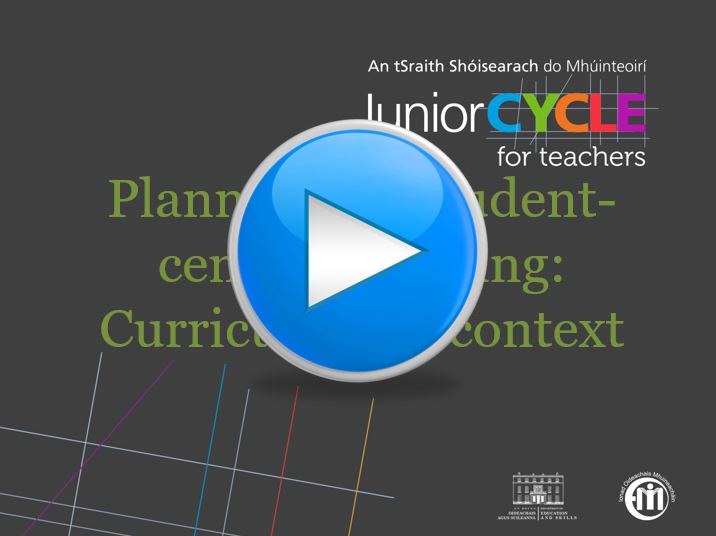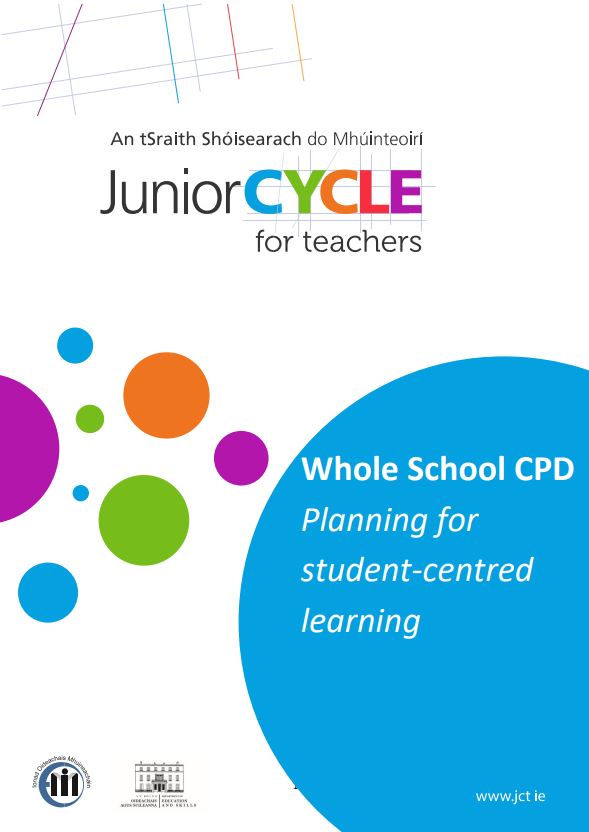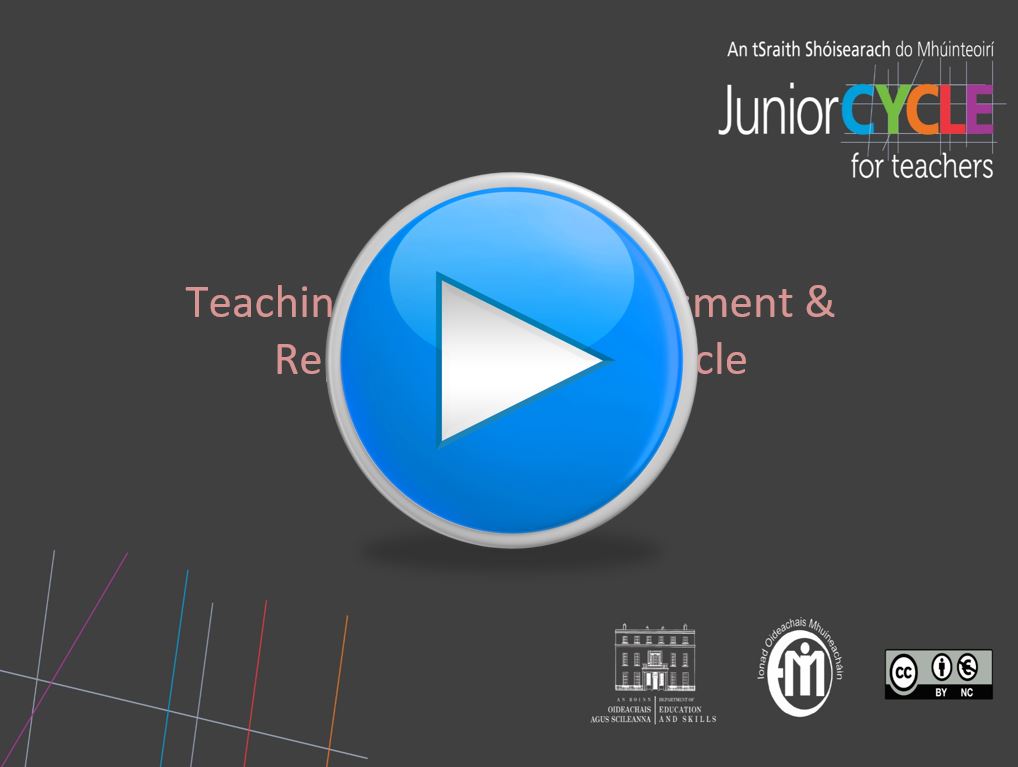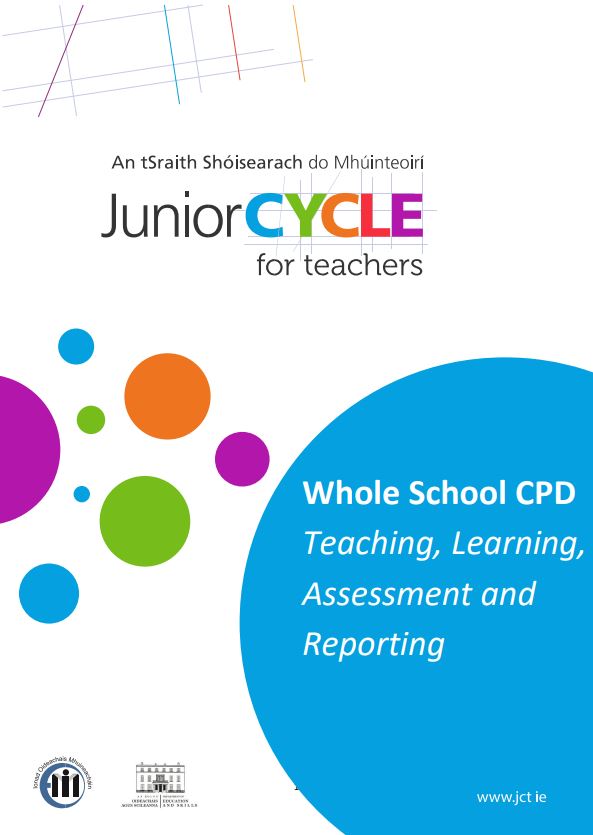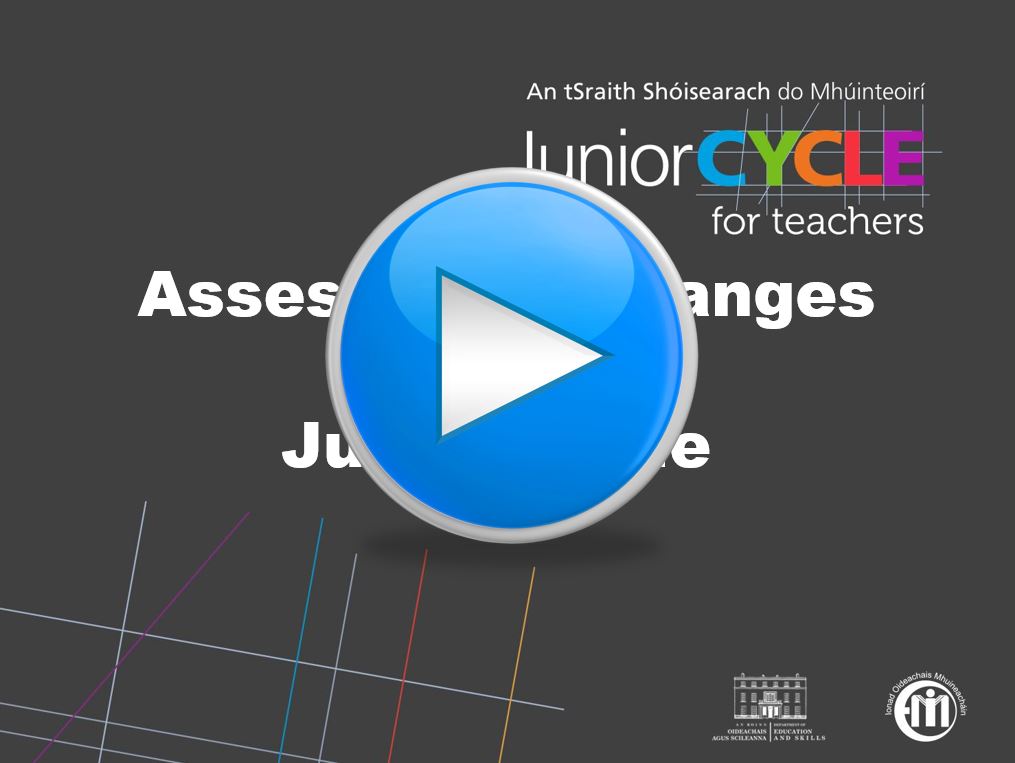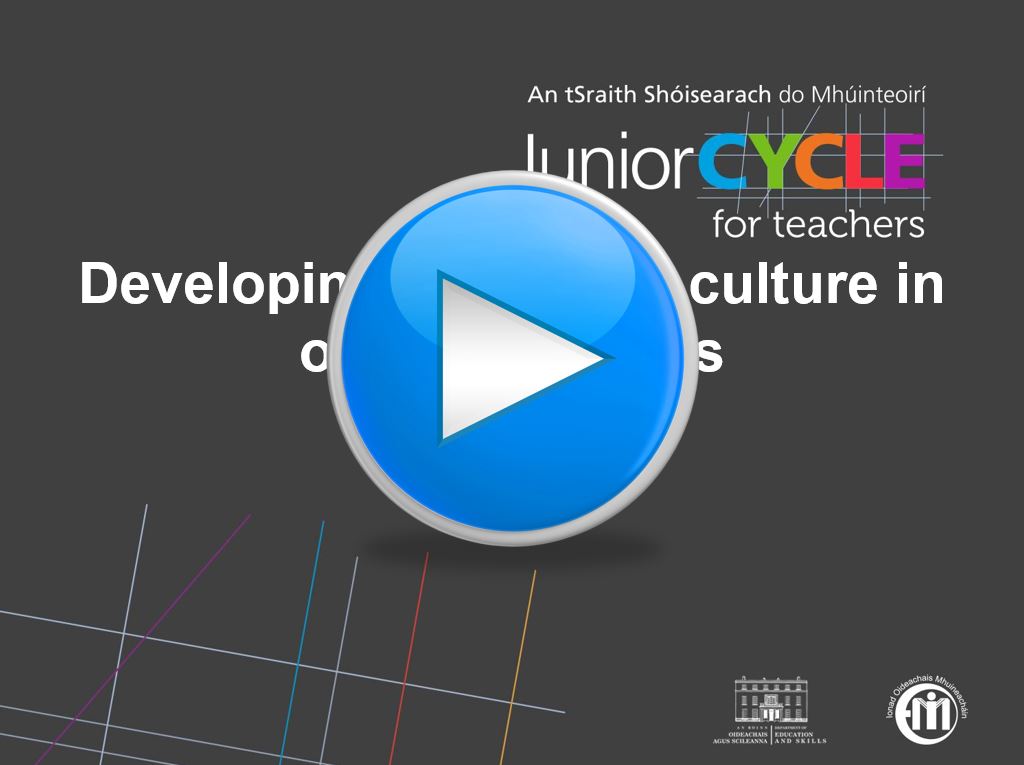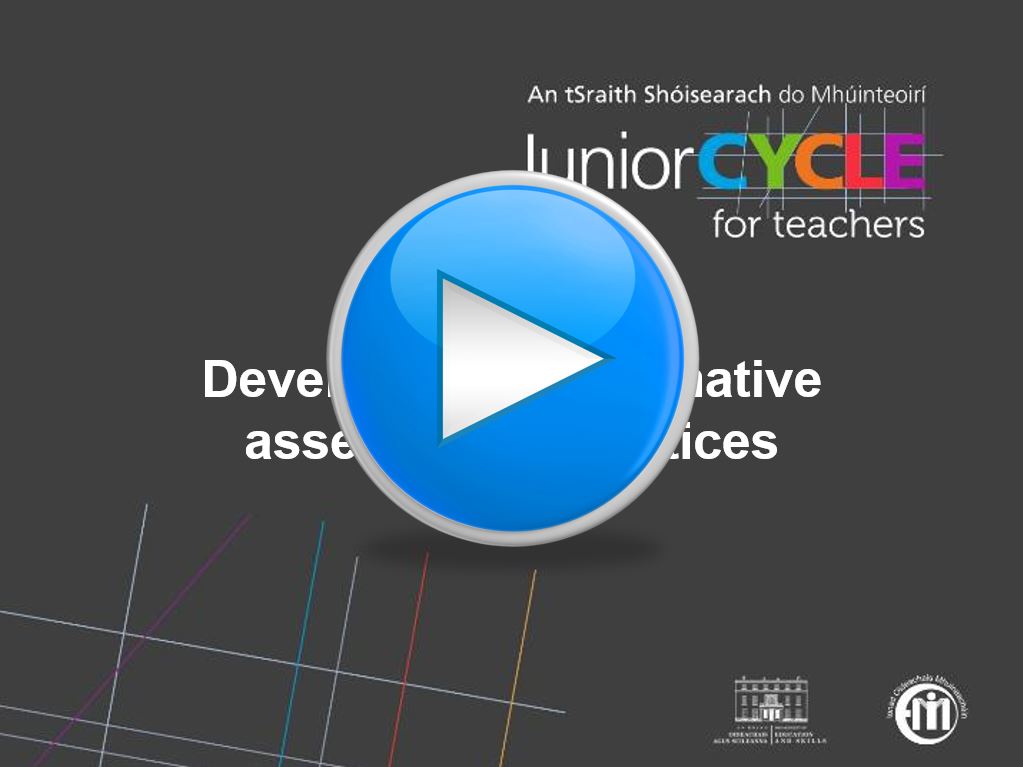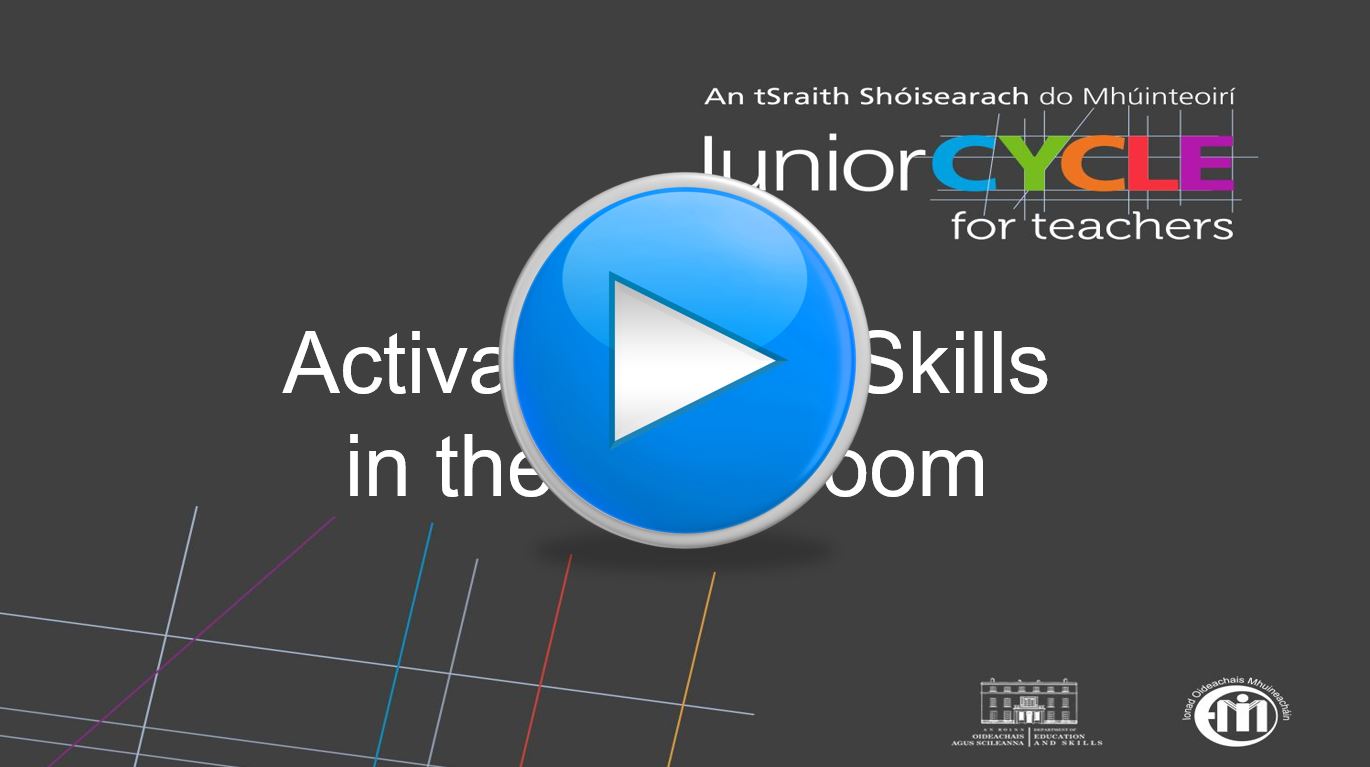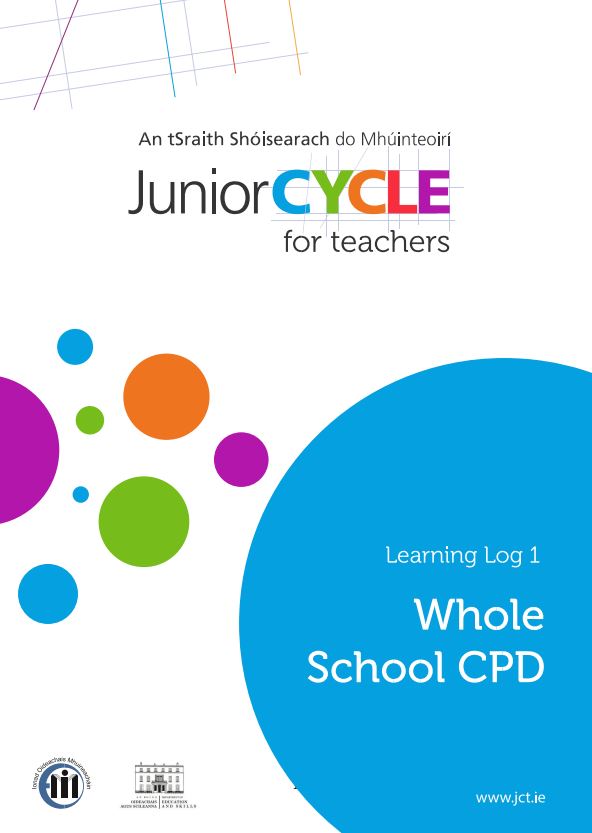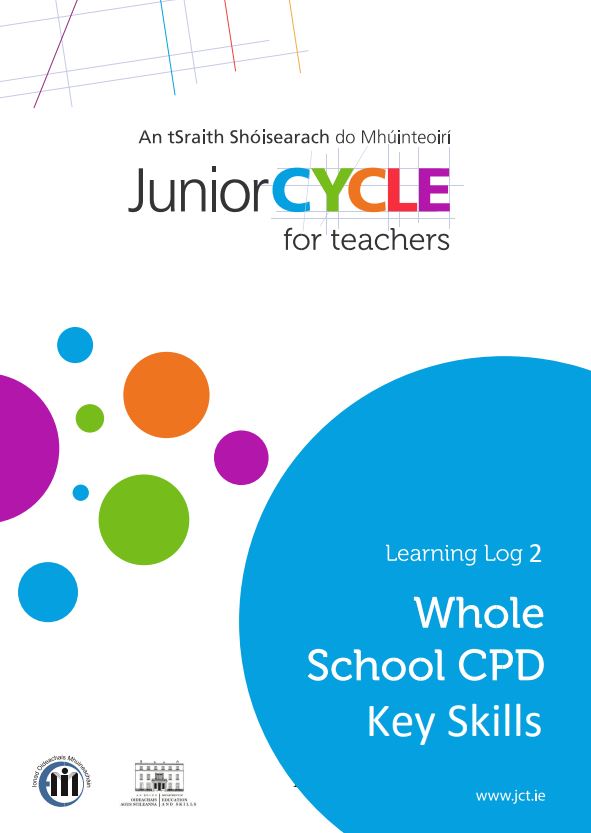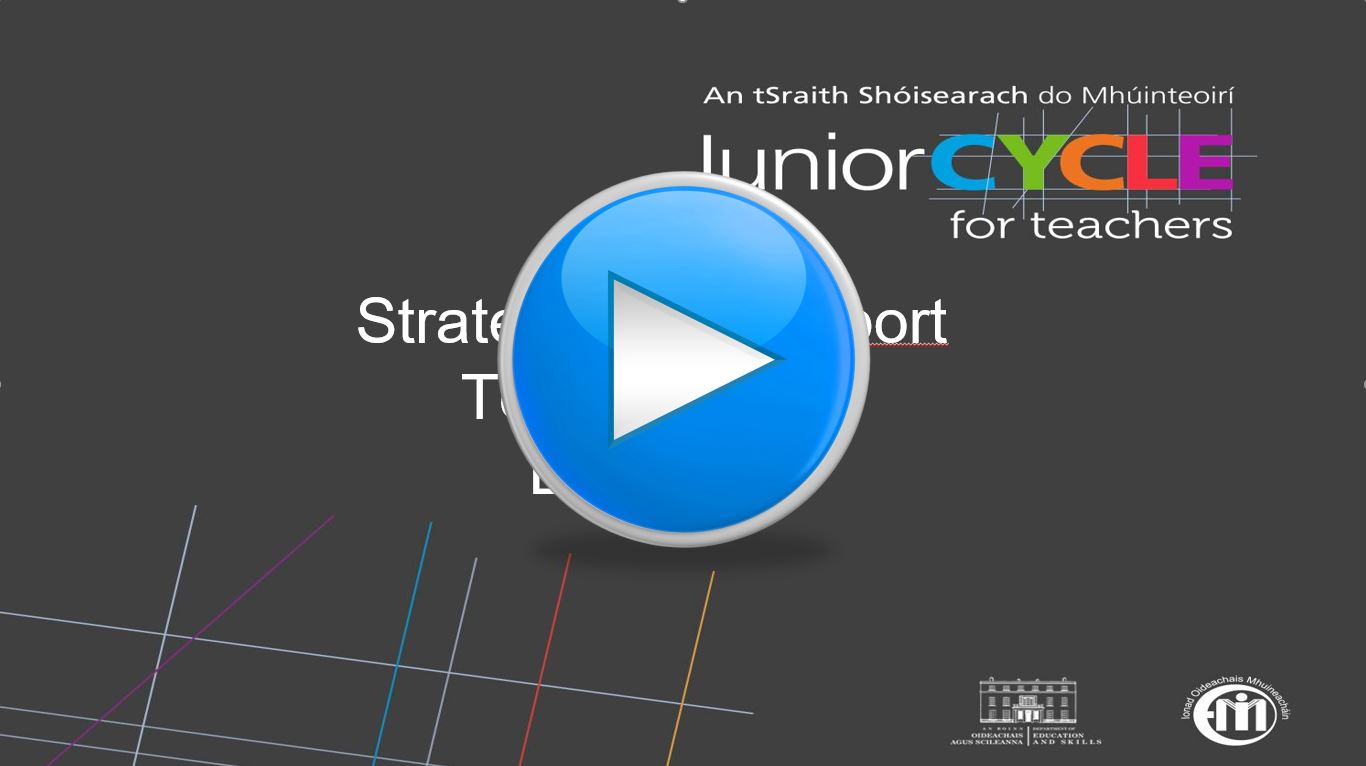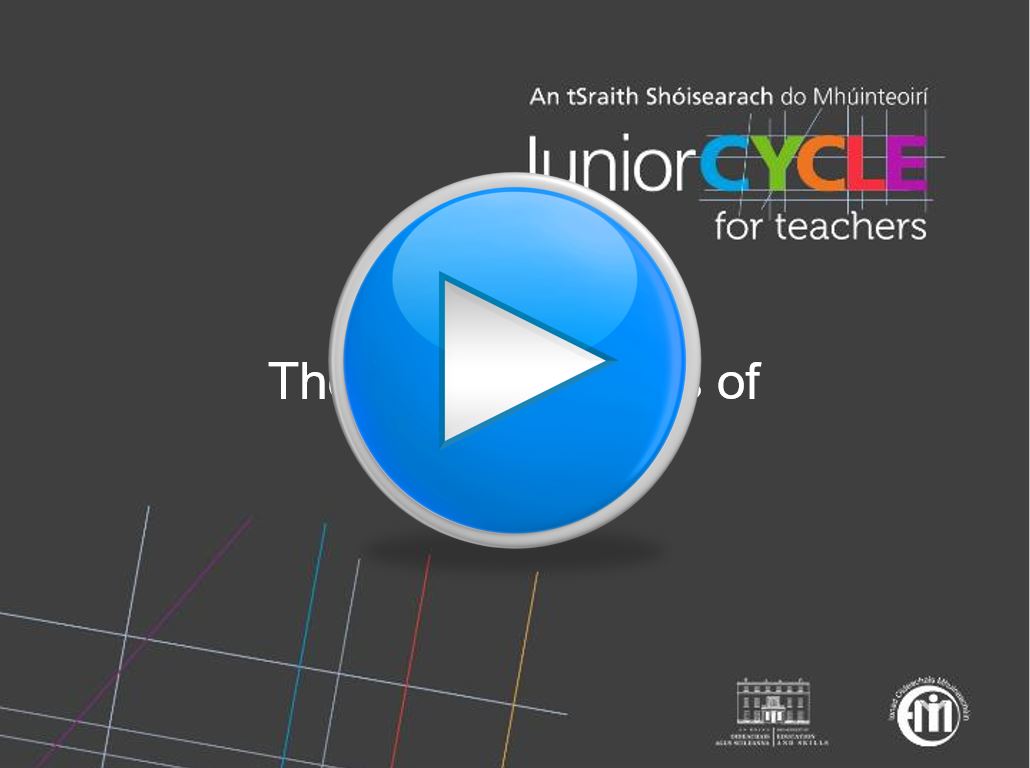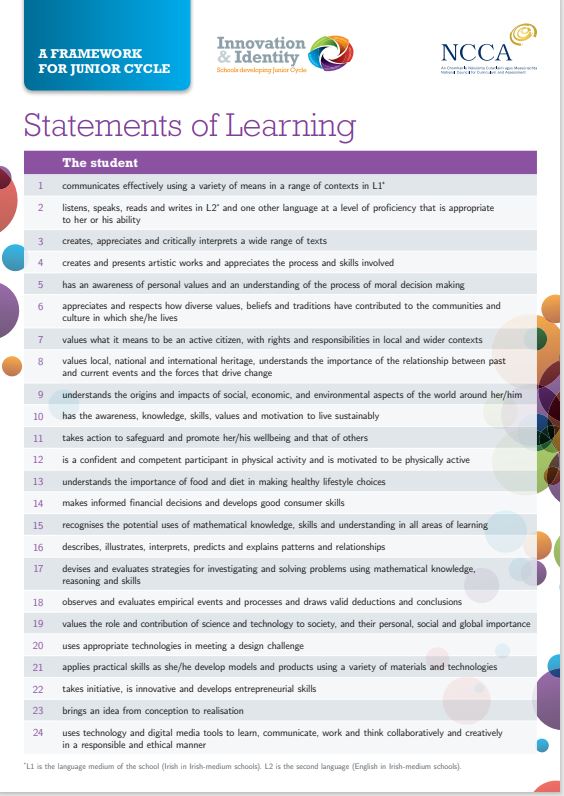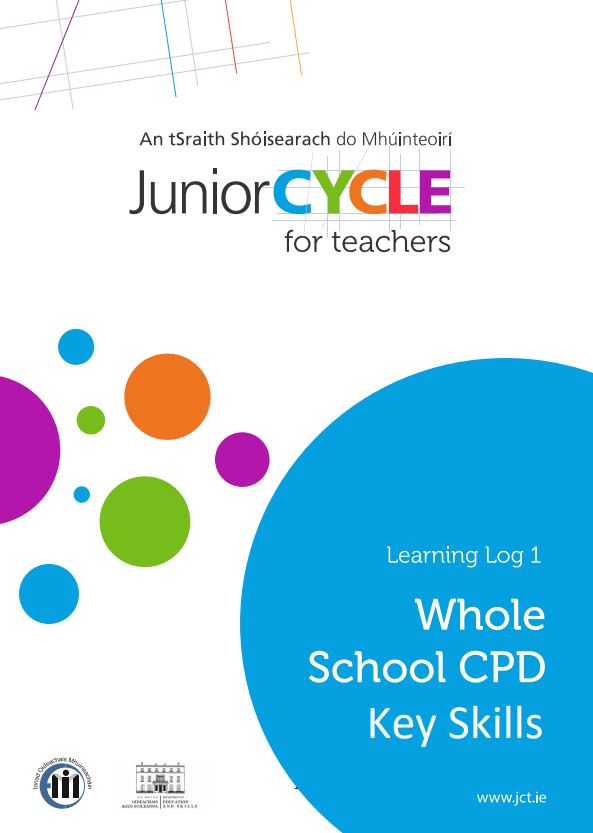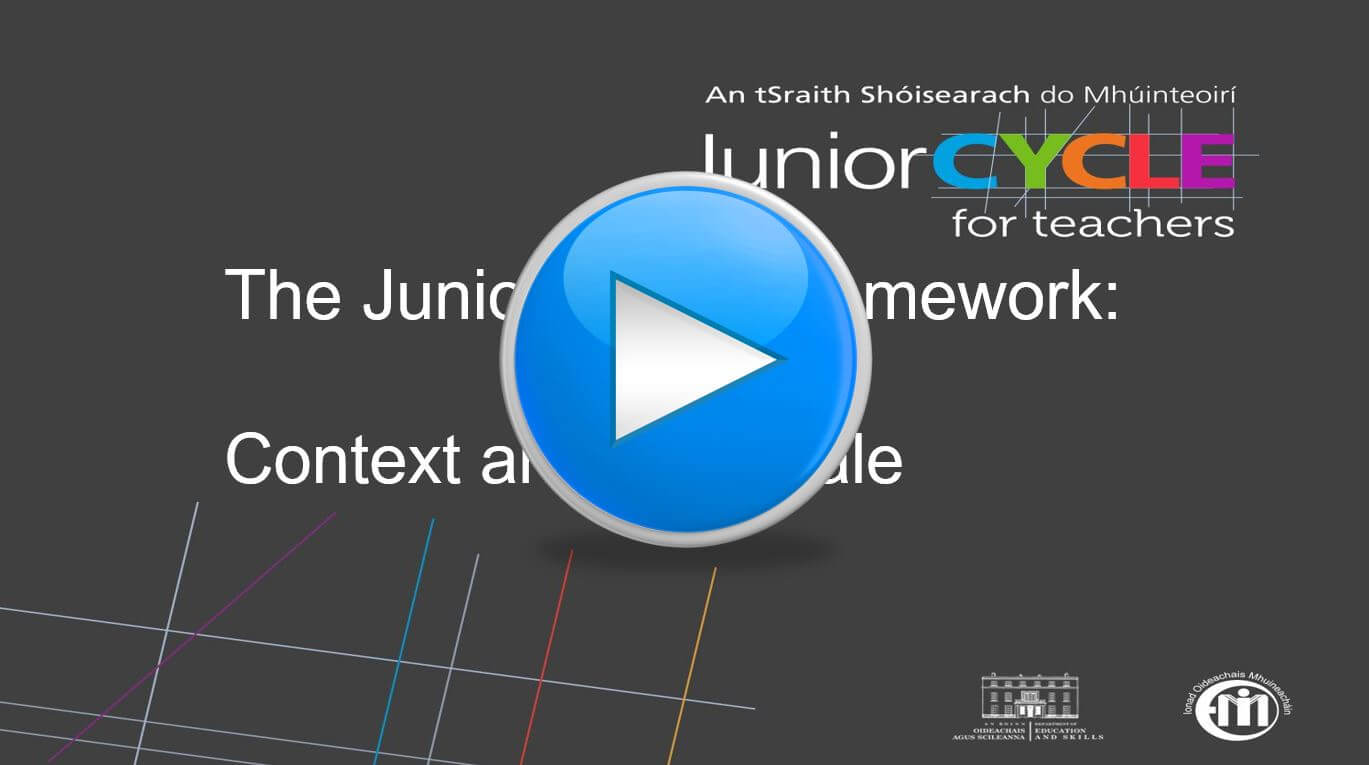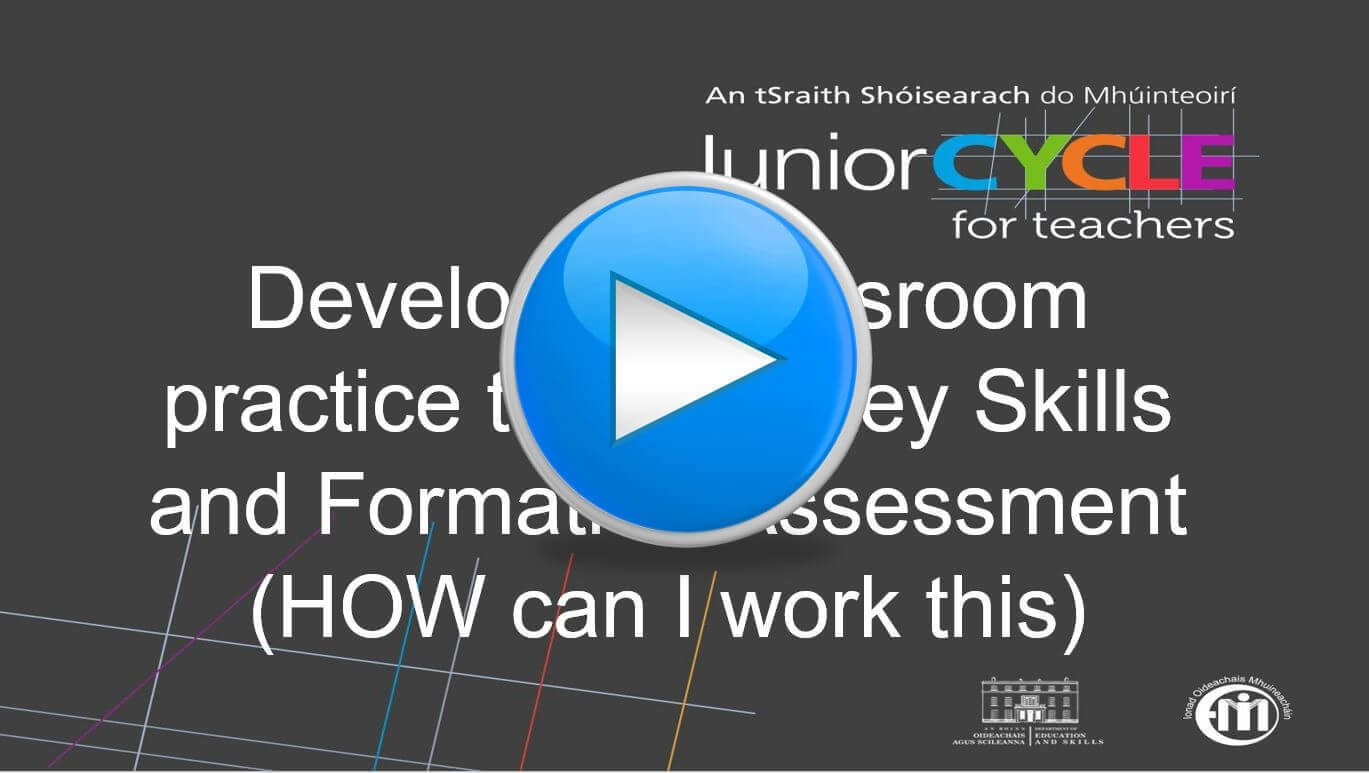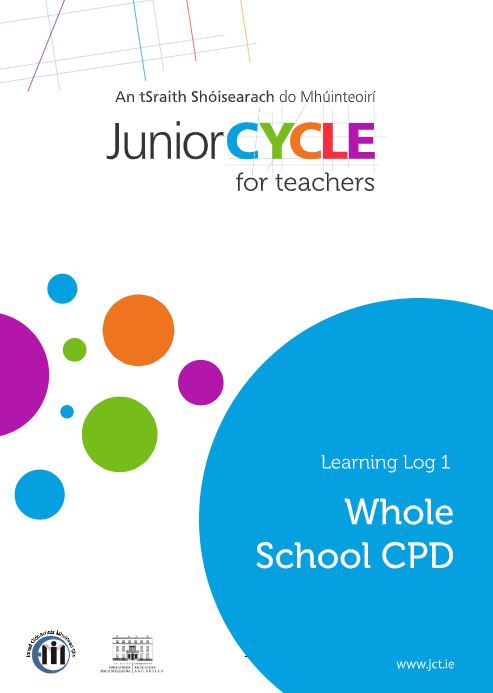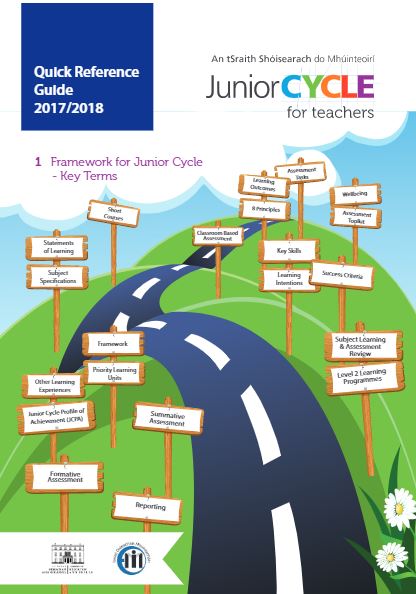Whole School CPD Workshops 2015-2020
Introduction
The JCT Whole-school Team evolved into the Junior Cycle Implementation Support Team commencing formally in September 2021.
Between 2015 and June 2021, the Whole-school Team facilitated many workshops nationally, closing schools for teachers and school management, to attend their “Whole-school Day”.
Below you will find the workshops associated with those “Days”. In terms of their content, there remains strong support for all aspects of Teaching, Learning, Assessment and Reporting.
All workshops reflect the Framework for Junior Cycle (2015) as implemented by the Junior Cycle Circular Letter current at that time.
In terms of the implementation of Junior Cycle, for the 2021/2022 school-year, the Framework must be read alongside the current Junior Cycle Circular 59/2021.
Any references to the NCCA Junior Cycle Wellbeing Guidelines, should now be read in the light of their revised guidelines - Junior Cycle Wellbeing Guidelines 2021.
All references to the Wellbeing Policy Statement and Framework for Practice, should now be read in the light of the revised edition - Wellbeing Policy Statement and Framework for Practice
Any references to Junior Cycle Subject Specifications and Assessment Guidelines should be referenced from the Junior Cycle section of the NCCA’s curriculumonline website, which houses the most up to date version of these.
-
Online CPD Workshops arrow_drop_down
In the school year, 2020/2021, Junior Cycle for Teachers (JCT) continued to offer Whole School CPD support, supporting the needs of schools as appropriate, subject to Public Health Advice during the Covid 19 pandemic. These online elective modules focused on supporting student learning during COVID 19. The thread, supporting student learning during COVID 19, is essential and core to each of the electives.
Assessment Considerations to Support Student-Centred Learning
Supporting Student Learning through the use of Digital Portfolios
Every Child in Every Classroom - Universal Design for Learning
Planning for every child in every classroom: An introduction to the principles of Universal Design for Learning (UDL).
Supporting Student Learning in the Wellbeing Programme
Supporting Student Learning: Learning to Learn
-
Curriculum in Context: Planning for Student-Centred Learning arrow_drop_down
Curriculum in Context: Planning for Student-Centred Learning
Aims:
- Identify ways our unique school context informs our implementation of the Framework for Junior Cycle, 2015
- How to use reflection as a means of enhancing our professional learning around quality teaching and learning
- Develop our understanding of planning for student-centred learning across a whole school context
- How to plan collaboratively and make meaningful connections across our classrooms
- Further our understanding of planning for student-centred learning across a whole school context by sharing collaboratively
- How to reflect on the impact of our professional learning on our practicesFile type: Presentation - click image to view -
Teaching, Learning, Assessment & Reporting in Junior Cycle arrow_drop_down
Teaching, Learning, Assessment & Reporting in Junior Cycle
Aims:
- Further our understanding of how ongoing assessment supports student learning
- Identify ways that assessment can have a positive impact on learning and teaching in the classroom
- Recognise the connection between teaching, learning, assessment and reporting
- Design effective assessments -
Wellbeing in Junior Cycle arrow_drop_down
Wellbeing in Junior Cycle
Aims:
- Establish where Wellbeing sits within the Junior Cycle framework
- Deepen our understanding of Wellbeing
- Discuss our role as teachers in developing student wellbeing
This workshop can be found in the Wellbeing section. -
Level 2 Learning Programmes arrow_drop_down
For this national CPD day schools chose the Activating Key Skills in the Classroom or Assessment Considerations to Support Student-Centred Learning option and one other piece from the following options for their Whole-school CPD:
- Statements of Learning
- Activating Key Skills in the Classroom
- Assessment Considerations to Support Student-Centred Learning
- Exploring the potential of Short Courses
- Level 2 Learning Programmes - An Introduction
Further information on Level 2 Learning Programmes can be found in the L2LP section -
Exploring the Potential of Short Courses arrow_drop_down
For this national CPD day schools chose the Activating Key Skills in the Classroom or Assessment Considerations to Support Student-Centred Learning option and one other piece from the following options for their Whole-school CPD:
- Statements of Learning
- Activating Key Skills in the Classroom
- Assessment Considerations to Support Student-Centred Learning
- Exploring the potential of Short Courses
- Level 2 Learning Programmes - An Introduction
Further information on Short Courses can be found in the Short Courses section -
Assessment Considerations to Support Student-Centred Learning arrow_drop_down
For this national CPD day schools chose the Activating Key Skills in the Classroom or Assessment Considerations to Support Student-Centred Learning option and one other piece from the following options for their Whole-school CPD:
- Statements of Learning
- Activating Key Skills in the Classroom
- Assessment Considerations to Support Student-Centred Learning
- Exploring the potential of Short Courses
- Level 2 Learning Programmes - An Introduction
Assessment Considerations to Support Student-Centred Learning:
Aims
- The purpose of Assessment
- Effective assessment
- Alternative assessments
- Collaborative professional judgements -
Activating Key Skills in the Classroom arrow_drop_down
For this national CPD day schools chose the Activating Key Skills in the Classroom or Assessment Considerations to Support Student-Centred Learning option and one other piece from the following options for their Whole-school CPD:
- Statements of Learning
- Activating Key Skills in the Classroom
- Assessment Considerations to Support Student-Centred Learning
- Exploring the potential of Short Courses
- Level 2 Learning Programmes - An Introduction
Activating Key Skills in the Classroom
Aims:
- Examine the eight key skills and their elements
- Explore some examples from Irish classrooms where key skills are being embedded through a variety of learning experiences
- Consider the key skills within our own school context
- Engage in a number of active learning methodologies -
Statements of Learning arrow_drop_down
For this national CPD day schools chose the Activating Key Skills in the Classroom or Assessment Considerations to Support Student-Centred Learning option and one other piece from the following options for their Whole-school CPD:
- Statements of Learning
- Activating Key Skills in the Classroom
- Assessment Considerations to Support Student-Centred Learning
- Exploring the potential of Short Courses
- Level 2 Learning Programmes - An Introduction
Statements of Learning
Aims:
- Know that there are 24 statements of learning in the Framework.
- Examine the role of the statements of learning within the Framework
- Identify opportunities and chances to develop them further in this school’s junior cycle curriculum -
Framework for Junior Cycle: Context and Rationale arrow_drop_down
Framework for Junior Cycle: Context and Rationale
This national CPD day introduced all post-primary schools to the Framework for Junior Cycle 2015.
Aims:
- To explore how Junior Cycle reform is supported by Junior Cycle for Teachers (JCT) and the updated School Self-Evaluation process, Looking at Our School 2016 – 2020
- To explore national and international education research and experience that informs the Framework … WHY?
- To develop an understanding of the key components of ‘Framework for Junior Cycle 2015’ … WHAT?
- To explore the Framework in the classroom … HOW?File type: PPT

